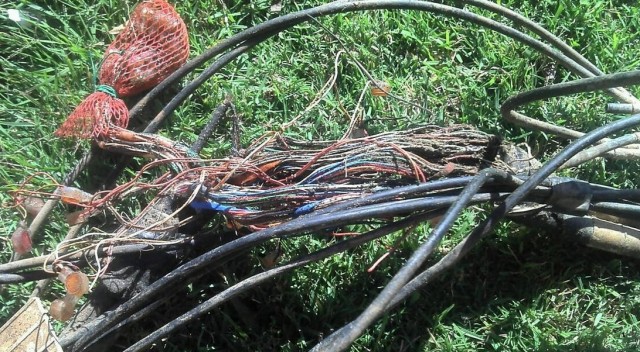
VDSL2 vectoring and G.fast are only as good as the copper wiring that extends to each customer. Up to 45 percent of North American wire pairs are in some state of disrepair.
Verizon has no interest in using advanced forms of DSL as part of its next generation broadband service.
Speaking at ADTRAN’s Broadband Solutions Summit, Verizon’s director of network planning Vincent O’Byrne made it clear DSL variants and copper wiring were not going to be a part of Verizon’s future network platform.
“We have no strategy for G.fast,” O’Byrne told Telecompetitor in response to a question about whether the company would upgrade or deploy advanced forms of DSL as part of overhauling its broadband networks.
Some telephone companies with large legacy copper networks have promoted DSL advancements including bonding, VDSL, and G.fast in lieu of costly fiber upgrades to shareholders and customers to improve the sluggish 6-10Mbps speeds many customers get from DSL service. But O’Byrne said Verizon has had nothing but headaches trying to make its legacy copper network actually deliver the improved broadband speeds those technologies promise on paper.
O’Byrne admitted Verizon’s copper network has not aged well, calling it “poor” in some areas. Verizon’s previous efforts to deploy VDSL and ethernet over copper to multiple dwelling units (MDUs) like apartment buildings and condos turned out so poorly, O’Byrne does not want to repeat those mistakes in the future.
 For urban areas and MDUs, O’Byrne stressed he plans to take fiber all the way to each condo unit or apartment and get rid of the copper.
For urban areas and MDUs, O’Byrne stressed he plans to take fiber all the way to each condo unit or apartment and get rid of the copper.
Verizon’s next generation fiber strategy will depend heavily on NG-PON2 technology, which is managed by unpowered splitters and filters — dramatically cutting the hardware costs associated with active fiber networks. Many PON networks are fiber to the premises, but then rely on Wi-Fi or Ethernet wired networks once inside a building. Verizon prefers an all-fiber solution, which is unusual among U.S. carriers. AT&T, CenturyLink and Windstream still use G.fast for relatively short runs of existing copper phone wiring inside MDUs and homes.
Verizon’s O’Byrne believes an all-fiber solution may cost more upfront, but will deliver better longevity, value, and fewer problems over time.


 Subscribe
Subscribe
Verizon is waiting for Frontier to recover from the bungled CTF acquisition to sell off the remaining unwanted wireline in the remaining states the telecom giant still serves. Maybe Consolidated or Cincinnati Bell may be in talks with VZ also to buy out some of those unwanted assets too.